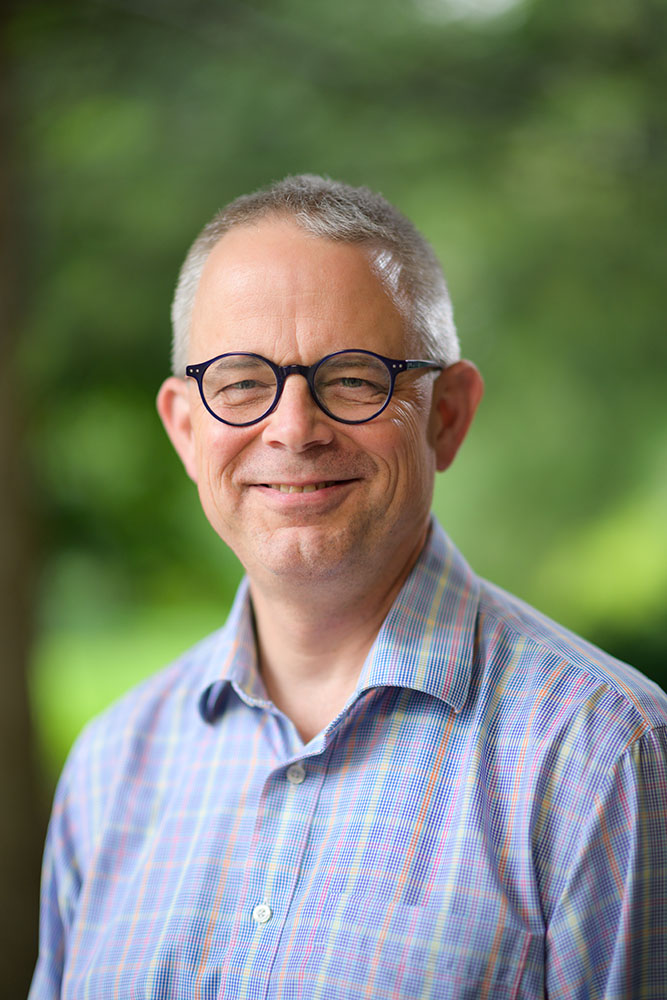
SEEdS:
Equity and Efficacy: Using Data to Drive Transformation in STEM
Seminar Description
Foundational STEM courses at research universities often adopt a shared set of structures, including large class sizes, passive lectures, high stakes, inauthentic examinations, extensive content coverage, and more. Decades of research suggest that many of these structures are both less effective and less equitable than alternative approaches. Continued reliance on them has earned these courses a long-standing, nation-wide reputation as exclusionary gateways; driving away capable students interested in STEM disciplines, often in inequitable ways. In this talk, McKay reviewed some of this research, including new multi-institutional, multi-disciplinary results from the SEISMIC collaboration, and argued that increasing the efficacy and equity of these courses requires structural change. Structural change is challenging, and often requires institutional support. He discussed examples of reform efforts that have successfully encouraged and enabled lasting change.In January 2025, the National Academies of Science, Engineering, and Mathematics issued a new report entitled “Transforming Undergraduate STEM Education: Supporting Equitable and Effective Teaching.” This report provides an overview of the challenges McKay addressed and highlights the essential importance of data-informed change.
This presentation was part of the Fulton Schools of Engineering Education Seminar (SEEdS) series, a monthly virtual speaker series that engages community members in discussions on engineering education. Learn more about SEEdS here.
From the discussion
While the discussion portions of SEEdS are not included in the recordings, here are a few key reflections to consider:
- What data might help you identify “bright spots” in your courses – areas of success that could inform improvements elsewhere?
- Is your primary focus on covering content, or on what students are demonstrating they’ve learned?
- How might you explore separating students’ conceptual understanding from their ability to perform calculations?
- Would it be valuable to replicate this kind of analysis within the FSE context to better understand dimensions of advantage? Advantage dimensions that the SEISMIC collaboration found across five universities included:
- Being a continuing-generation college student (access to college knowledge)
- Access to substantial financial resources
- Membership in dominant social groups
- Prior preparation related to introductory course topics
Guest Speakers
Tim McKay is the Arthur F. Thurnau Professor of Physics, Astronomy, and Associate Dean for Undergraduate Education in the College of Literature, Science, and the Arts, and Professor of Education in the School of Education at the University of Michigan. McKay received a BS in Physics from Temple University, where he was a first-generation, commuter student. He received his PhD in Physics from the University of Chicago in 1992, and joined the faculty at Michigan in 1995.
McKay’s team has applied observational and experimental data science methods to astrophysics, cosmology, and education. They have probed the growth of cosmic structure as well as the expansion history of the Universe, especially through studies of galaxy clusters and gravitational lensing. They have discovered prompt optical counterparts to gamma-ray bursts and many other astrophysical transients. Since 2008, they have been using classroom and institutional data to make higher education more equitable, inclusive, and effective. In the last few years, McKay has helped to launch the Foundational Course Initiative, the Sloan Equity and Inclusion in STEM Introductory Courses (SEISMIC) project, the Mellon College and Beyond II study, and the Mellon Transfer Bridges to the Humanities Project.
Missed a session? Access recordings of past SEEdS topics on our YouTube channel or those in the ASU community can explore our SEEdS resource folder.
